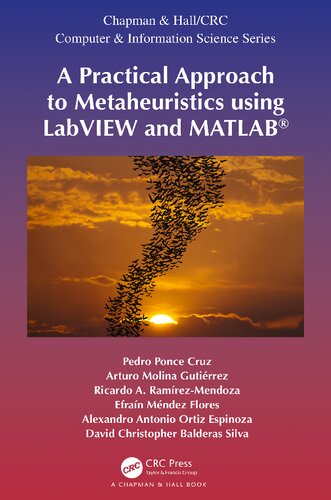

Most ebook files are in PDF format, so you can easily read them using various software such as Foxit Reader or directly on the Google Chrome browser.
Some ebook files are released by publishers in other formats such as .awz, .mobi, .epub, .fb2, etc. You may need to install specific software to read these formats on mobile/PC, such as Calibre.
Please read the tutorial at this link: https://ebookbell.com/faq
We offer FREE conversion to the popular formats you request; however, this may take some time. Therefore, right after payment, please email us, and we will try to provide the service as quickly as possible.
For some exceptional file formats or broken links (if any), please refrain from opening any disputes. Instead, email us first, and we will try to assist within a maximum of 6 hours.
EbookBell Team

4.7
16 reviewsMetaheuristic optimization has become a prime alternative for solving complex optimization problems in several areas. Hence, practitioners and researchers have been paying extensive attention to those metaheuristic algorithms that are mainly based on natural phenomena. However, when those algorithms are implemented, there are not enough books that deal with theoretical and experimental problems in a friendly manner so this book presents a novel structure that includes a complete description of the most important metaheuristic optimization algorithms as well as a new proposal of a new metaheuristic optimization named earthquake optimization. This book also has several practical exercises and a toolbox for MATLAB® and a toolkit for LabVIEW are integrated as complementary material for this book. These toolkits allow readers to move from a simulation environment to an experimentation one very fast. This book is suitable for researchers, students, and professionals in several areas, such as economics, architecture, computer science, electrical engineering, and control systems.
The unique features of this book are as follows:
The authors are multidisciplinary/interdisciplinary lecturers and researchers who have written a structure-friendly learning methodology to understand each metaheuristic optimization algorithm presented in this book.